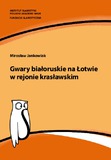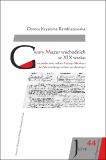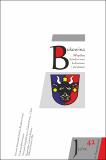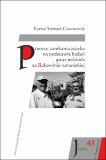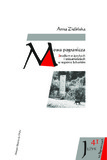
Language of the borderlands. A study of languages and identities in the Lubusz region
Mowa pogranicza. Studium o językach i tożsamościach w regionie lubuskim
Keywords: dialectology;sociolinguistics;bilingualism;Lemko dialect;Bukovinian dialect;Polesie dialect;Ukrainian language;Polish language;German language
“The work is novel, original and pioneering not only in terms of its narrowly understood subject matter (a study of languages and identities in the Lubusz region) but likewise in wider terms as a sincere, aeideological look at so-called new mixed dialects in so-called Western and Northern Territories” (Professor Bogdan Walczak). “In her studies on language contact in the borderlands, Anna Zielińska has developed her own original methodology, combining elements of sociolinguistics, dialectology and cultural studies. In the monograph she present a comprehensive description of ways of communication actually at play in multilingual territories with diverse immigrant populations and a multifaceted hierarchy of languages and their varieties. Approach of this kind has hitherto not been applied to the Lubusz region, with existing studies usually attempting to model an ideal state of integrated Polish” (Professor Ewa Wolnicz-Pawłowska). “Anna Zielińska’s book deconstructs the stereotypes which have accrued in Poland about the so-called Recovered Territories due to the political and ideological conditions of the last half century. This study, brilliantly underpinned in terms of material and theory, is a pioneering combination of classic sociolinguistic approach with an anthropological perspective which inspires deliberations about the nationalistic mechanisms in Polish scholarly discourse concerning this area” (Professor Anna Engelking).
More...
